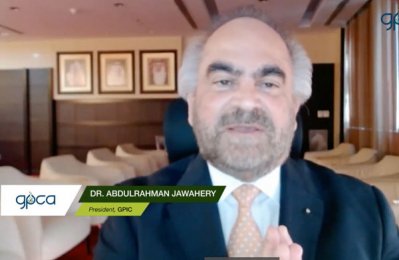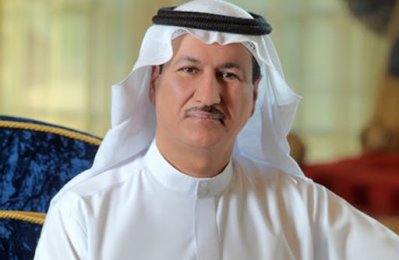GPCA summit puts spotlight on the role of agri-nutrients for food security
The role of agri-nutrients will be critical to the future of global food security, said speakers at the 11th virtual Agri-Nutrients Conference organized today by the Gulf Petrochemicals and Chemicals Association (GPCA).
More Stories
The role of agri-nutrients will be critical to the future of global food security, said speakers at the 11th virtual Agri-Nutrients Conference organized today by the Gulf Petrochemicals and Chemicals Association (GPCA).
However, the agri-food chain, including producers, technology providers and farmers, as well as policy makers, would need to come together to ensure that agri-nutrients are used responsibly and efficiently, and take steps to lower their carbon footprint.
This was one of the key takeaways from day one of the event which is being held under the theme ‘Forging new avenues for a food secure future’. Conference speakers reiterated the vital role of agri-nutrients to help deliver nutrition to billions of people across the world. At the same time, they highlighted a series of formidable challenges facing the industry currently and discussed ways in which they can be addressed.
Abdulrahman Al-Suwaidi, CEO, Qafco, and Chairman, GPCA Agri-nutrients Committee, delivered the welcome remarks, highlighting the impact of the Covid-19 pandemic on global food security and urging governments to take comprehensive steps to develop and sustain food systems.
“The global prevalence of moderate or severe food insecurity has been increasing slowly since 2014 and the estimated increase in 2020 alone was equivalent to that of the previous five years combined. Nearly one in three people across the world – approximately 2.37 billion people – did not have access to adequate food in 2020,” he told the audience.
“[Adding to this], global food supply chains have been severely affected by the pandemic and measures to control or mitigate the virus have impacted the pace of harvests in some parts of the world, leaving millions of seasonal workers without income,” he added.
“Factors like these, coupled with the reduced income of families due to the pandemic, have resulted in an increase in the number of people suffering from a lack of access to sufficient nutrition.”
Dr Nora Ourabah Haddad, FAO Representative to the Sultanate of Oman, echoed these remarks in a keynote address entitled ‘Strengthening the foundation of the global food security agenda in the wake of the pandemic.’
The importance of the agri-nutrients industry was further stressed upon during the Fireside Chat, the newest feature of the conference, which hosted visionary leaders, including, Dr Abdulrahman Jawahery, President, GPIC and Esin Mete, Founder, MT Agri-Consulting.
The current environment means that the world will not be able to meet its food production goals without the efficient and effective use of agri-nutrients, agreed speakers. However, this will come with its own set of challenges, as farmers face the decline of arable land and increasing water scarcity.
The agri-nutrients value chain is therefore faced with an important question ‘How to achieve higher crops yields, while improving the sustainability impact of agri-nutrients today and ensuring fewer nutrient losses to the environment?’ This will be the focus of the second day of the conference on 16 September, which will see conference speakers discuss the role of collaboration, innovation, and advanced technology in lowering our environmental footprint.
Dr. Abdulwahab Al-Sadoun, Secretary General, GPCA, commented: “The 11th GPCA Agri-nutrients Conference has got off to a great start, with a range of insights delivered by regional and global experts, who shared their perspectives on most probable future developments and how the agri-nutrients industry can help to improve agricultural productivity and in turn provide healthy and sufficient food for all.”
He added: “Don’t forget to join us on Day 2 of this insightful and immersive virtual event, which promises a new dose of engaging conference sessions on topics ranging from how advanced farming techniques will help to strengthen the GCC’s self-sufficiency agenda; the latest innovations to future-proof the ammonia and fertilizer industry; controlled release fertilizers; digital technologies, and many more.”—TradeArabia News Service
Projects
















